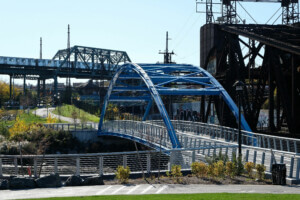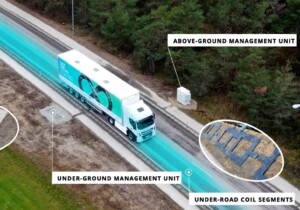In a big move to reduce traffic congestion, the tiny European country of Luxembourg has scraped transit fares and made all modes of public transportation free.
Various European municipalities have enacted free public transit schemes, some on a restricted or resident-only basis, with Dunkirk, France, and Tallinn, Estonia, being among the largest cities to do so. Luxembourg, however, is the first country in Europe or elsewhere to do away with fares almost entirely on a nationwide basis. As Agence France-Presse (AFP) reported, some evening bus services, as well as first-class domestic train travel, will still be subject to fares.
Now that Luxembourg’s free transit plan has been unrolled throughout the entire castle-stuffed, landlocked country, officials hope that its congestion-curbing impact will prove most potent in the capital of the Grand Duchy, Luxembourg City. Historic Luxembourg City is home to roughly 122,000 of the Rhode Island-sized nation’s nearly 614,000 residents but the majority of its traffic woes.
As reported by the Luxembourg Times, Luxembourg City has the sixth-worst congestion for a global city with a population of less than 800,000. Only the Polish cities of Lodz, Krakow, Poznan, and Wroclaw, along with the Scottish capital of Edinburgh, fare worse. This data, pulled from an illuminating/horrifying annual index produced by Dutch location technology firm TomTom, ranks Luxembourg City as having the 25th worst urban congestion of any European city of any size trailing Budapest, London, Brussels, Rome, Paris, and the Ukrainian city of Dnipro. The European cities where drivers sit in traffic the least are almost exclusively Spanish.
Per the index, Luxembourg City motorists spent, on average, 163 hour—nearly a full week of their lives—stuck in weekday rush hour traffic in 2019.
AFP notes that Luxembourgish transit officials expect that eliminating fares will affect roughly 40 percent of the country’s households, with each saving about $112 in transit fares annually—a figure that demonstrates that getting around the wealthy nation via public transportation was affordable to begin with.
Per a 2018 transportation study cited by AFP, Luxembourgers are heavily dependent on private cars, using them for 47 percent of business-related excursions and 71 percent of leisure travel.
But as CNN points out, much of Luxembourg City’s notorious rush-hour traffic isn’t generated by native Luxembourg residents. Germany, France, and Belgium can all be reached from Luxembourg City within a half-hour. This means that a large, non-Luxembourgish contingent of workers clog the roads every morning and evening as they stream in and out of the city. Many of those working in Luxembourg City that commute from other countries daily—roughly 214,000 people per Deutsch Welle—choose to live in neighboring countries due to the astronomical cost of housing in the capital city. These commuters are encouraged to ditch their cars at the border and take advantage of Luxembourg’s now-free public transit system instead.
To help further alleviate congestion and enable commuters to get around with more ease is a new, growing modern tramway line in Luxembourg City. The first phase of the tramway was finished in 2017 and work on subsequent phases is expected to wrap up within the next several years. When completed, the line will link the southern outskirts of the Luxembourg City to Findel, a small village just north of the city limits that’s home to the country’s only international airport.
Luxembourg’s national public transit system costs roughly $562 million annually to operate. Fare sales contribute about $46 million, about 8 percent, a year to those costs and the government will cover the lost fares.
“The country at this very moment is in really good shape,” Dany Frank, a spokesperson for the Ministry of Mobility and Public Works, told CNN. “We, the government, want the people to benefit from the good economy.”











